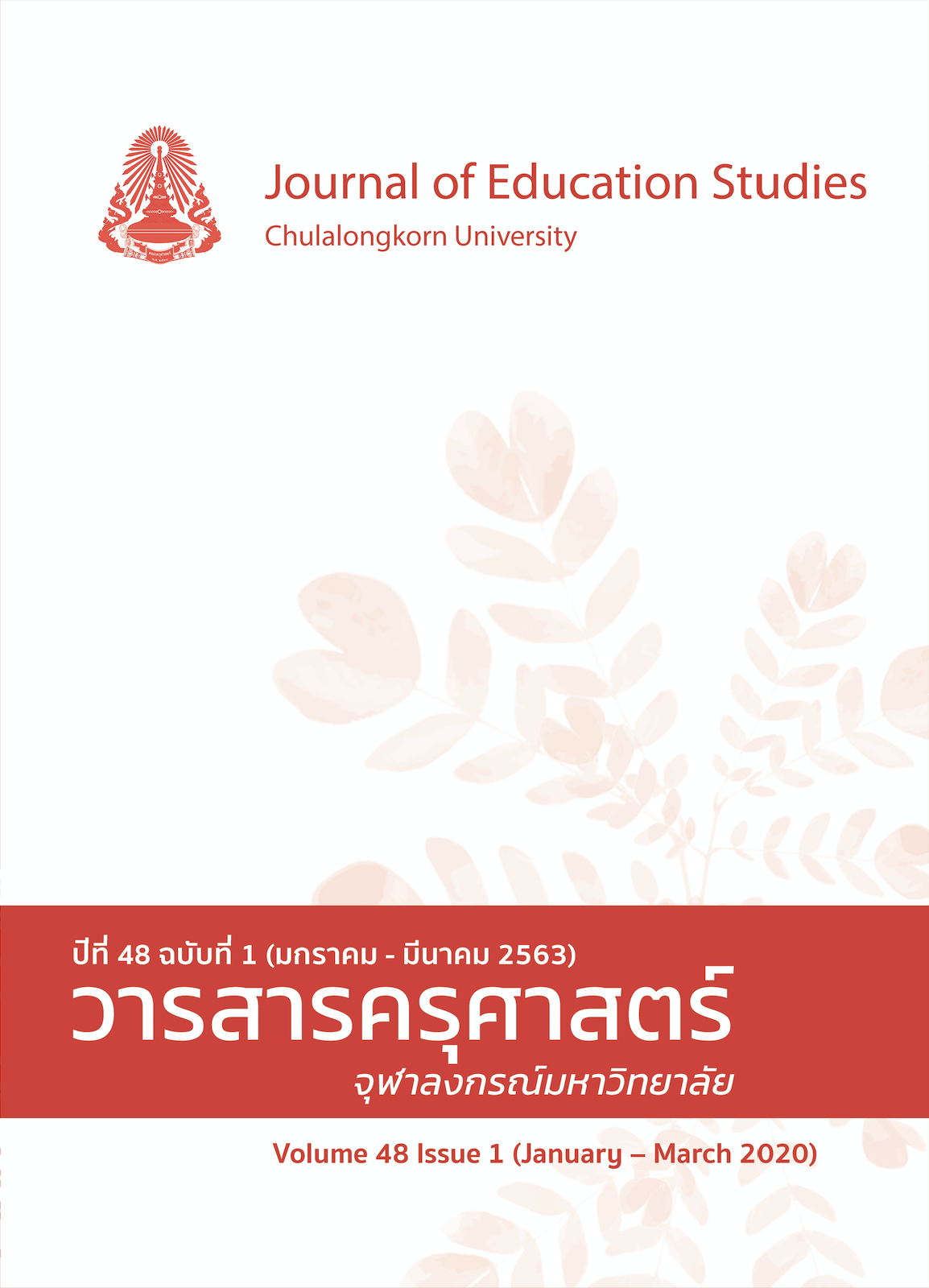Development of an Activity Management Model of Supplementary Textbook Design to Enhance Thai Language Skills Using Experiential Participatory Learning, Spatial Identity, and the Quest Model to Promote Thai Reading and Writing Skills for Learners in the
DOI:
https://doi.org/10.14456/educu.2020.79Keywords:
activity management model, supplementary textbook, experiential participatory learning, spatial identity, quest modelAbstract
The purposes of this research were: 1) to develop an activity management model of supplementary textbook design to enhance Thai language skills using experiential participatory learning, spatial identity, and the quest model; 2) to study the effectiveness of said model. The research target group consisted of 49 elementary school students and 9 teachers from ethnic schools in Chiang Mai province, and 25 students from The Chiang Mai University. The research Instruments were 1) the Activity Management Model, 2) activity plans, 3) a participatory learning observation form, 4) a supplementary textbook quality evaluation form, 5) a Thai reading and writing skills test, and 5) satisfaction questionnaires. The data was analyzed by using mean (M), standard deviation (S.D.), and dependent t-test. The findings of this study are as follows: 1. The Activity Management Model consists of five components: 1) principle, 2) objective, 3) learning activity (consisting of 5 steps, which are (i) experience & spatial identity, (ii) Quest model, (iii) language & reflection, (iv) conceptual summary, and (v) creation), and 4) evaluation of the model 2. The findings regarding the model are as follows: 2.1 The research target group cooperated in activities well, resulting in one form of supplementary textbook; 2.2 The supplementary textbook was effective 79.81/80.10; 2.3 The average post-test scores for the Thai reading and writing skills test was significantly higher than that of the pre-test scores, with p<.05; 2.4 The research target group was highly satisfied with the model and supplementary textbook.
Downloads
Published
How to Cite
Issue
Section
License

This work is licensed under a Creative Commons Attribution-NonCommercial-NoDerivatives 4.0 International License.




